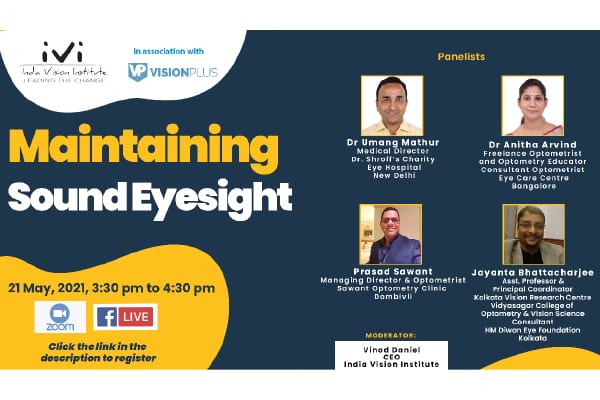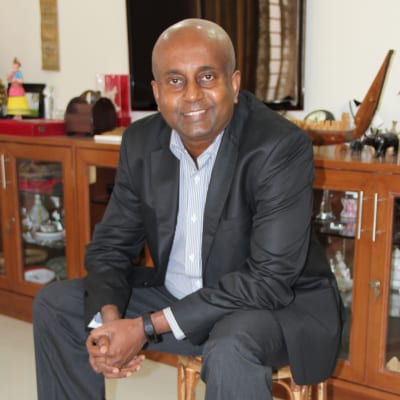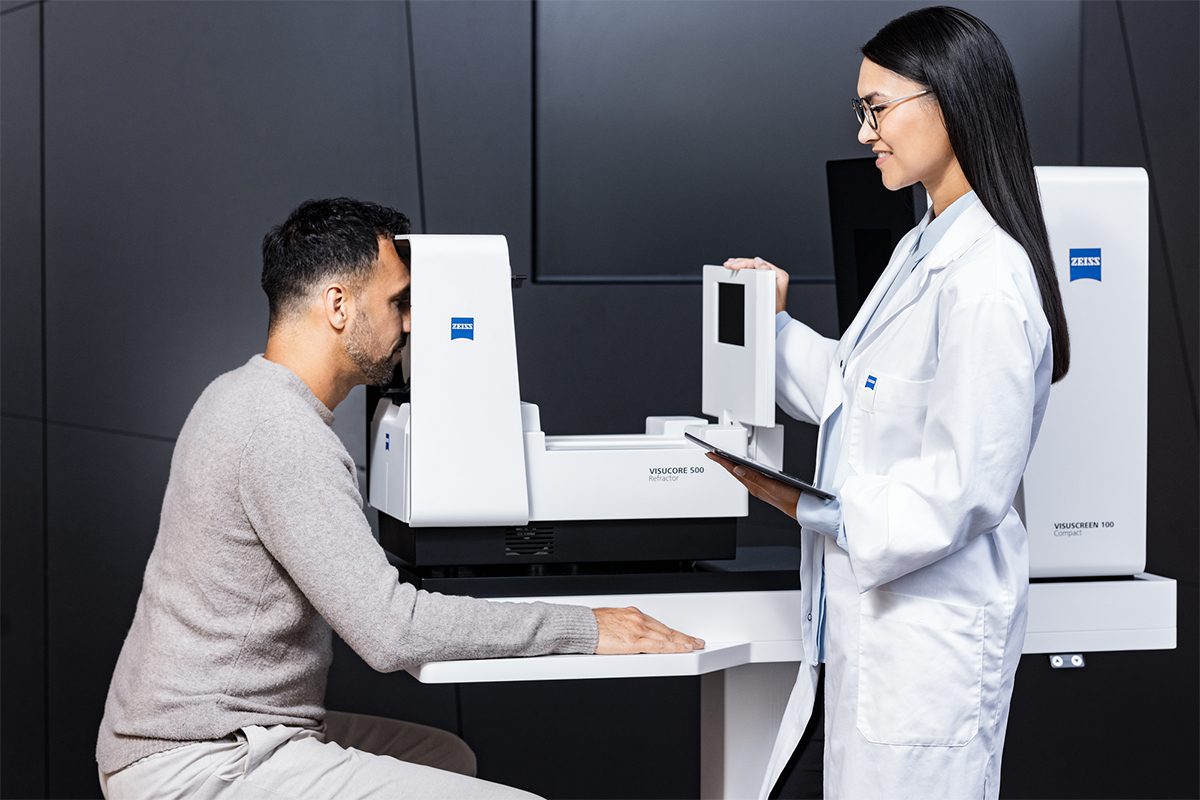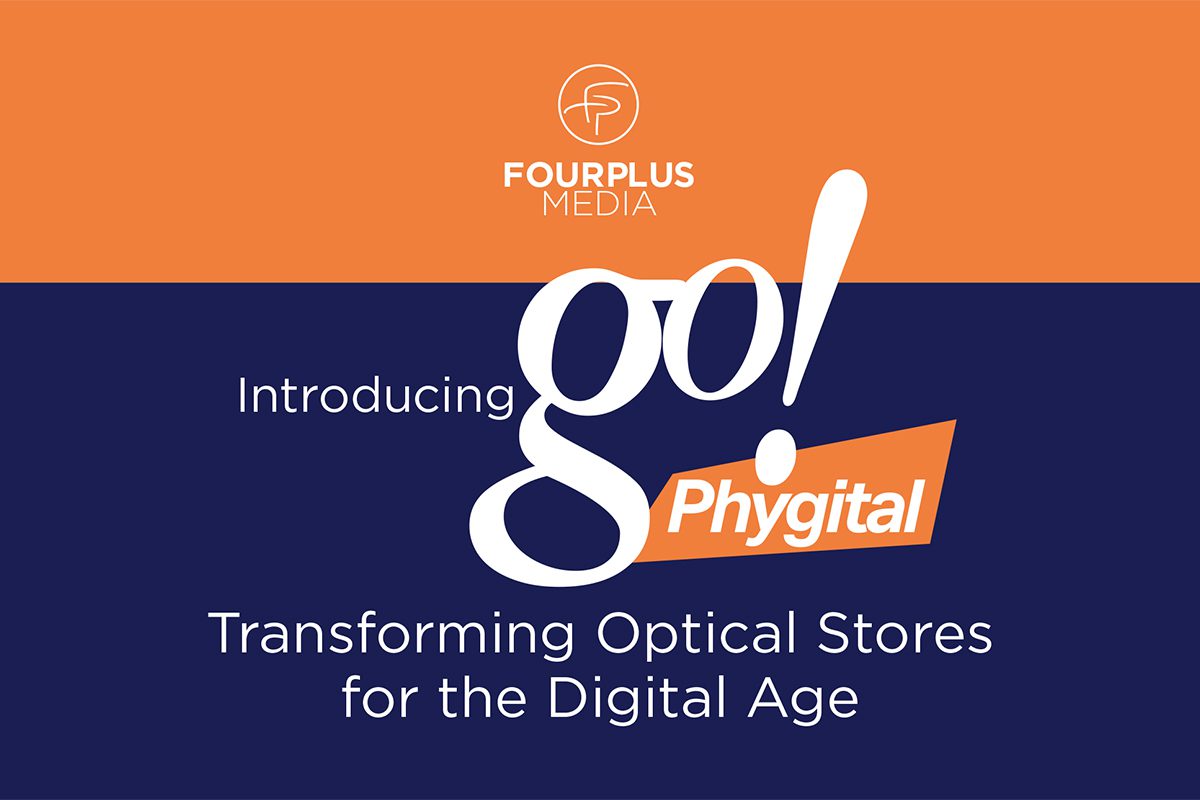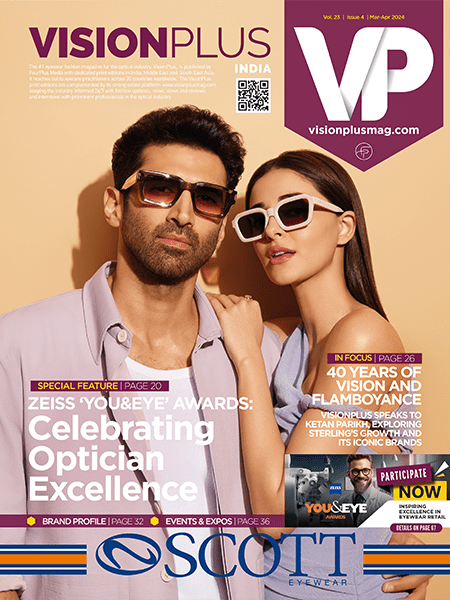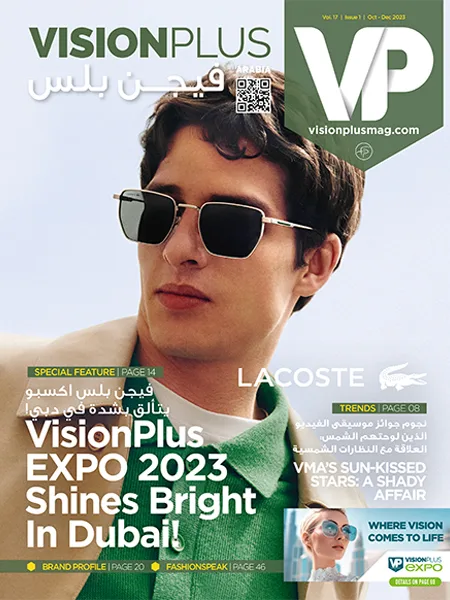Moderated by IVI’s CEO, Vinod Daniel, the panel at the discussion comprised Dr Umang Mathur, Medical Director, Dr Shroff’s Charity Eye Hospital (SCEH), Dr Anitha Arvind, Freelance Optometrist and Optometry Educator, Consultant Optometrist, Eye Care Centre, Bangalore, Jayanta Bhattacharjee, Asst. Professor and Principal Coordinator, Kolkata Vision Research Center (KVRC), Vidyasagar College of Optometry & Vision Science, Consultant, H.M. Diwan Eye Foundation, Kolkata, Board Member, Optometry Council of India, and Prasad Sawant, Managing Director and Optometrist, Sawant Optometry Clinic.
Vinod Daniel asked the panelists whether the ongoing COVID-19 pandemic has had an effect on eye health, and the prevalence of conditions such as Myopia, or nearsightedness, which impairs the vision of millions of people globally. Lifestyle patterns in today’s world and the excessive reliance on digital devices may have served to accentuate the public health challenge myopia presents. The COVID-19 pandemic is playing a part too. “The pandemic has forced many schools and students to switch to online classes. Children have very little outdoor activity and we know this situation is a recipe for Myopia,” explained Dr Umang Mathur, “There is an observable rise in Myopia because of all the gadgets children are using and the near work that they have to do.” There are also threats other than Myopia. Demographic changes countries including India are experiencing mean that the proportion of older people in the population is increasing. Statistically, as Dr Mathur pointed out, an ageing population is likely to lead to a rise in the number of people with conditions such as Cataract, Glaucoma and Diabetic Retinopathy.
Early detection of vision threatening conditions are ideal and can be of great help in combating any eye disease. Mr Daniel highlighted the existence of several barriers that prevent early detection and obstruct the use of remedial measures such as eyeglasses in many parts of India. He suggested that panelists shed light on these barriers and ways to overcome them. According to Dr Anitha Arvind, people often do not take up eye care services for either person-related or service-related reasons. Person-related reasons may range from the erroneous belief a person may have that his or her life has not been affected by vision loss, to an irrational faith in herbal remedies or traditional techniques over modern medicine. Service-related barriers refer to accessibility issues such as the distance to the nearest eyecare center and the cost involved. “Awareness of eye health issues is lacking. Many, including those in rural areas, still do not consider wearing spectacles as acceptable,” said Jayanta Bhattacharjee.
The panelists suggested a two-pronged approach to address the issue. Identifying geographic access and economic access as the two important variables determining a person’s ability to receive quality vision care, they suggested improving the distribution of vision centers and trained human resources more evenly across the country to offset the ill effects of regional inequalities and the urban-rural divide. Panelists also emphasised the importance of providing affordable eye care, and called upon both the government and non-government (NGO) sectors to channelise resources to help make eye care more affordable to the underprivileged and those in remote parts of the country.
As individuals, we can do our bit to maintain sound eyesight even in these difficult times. Mr Daniel asked the panelists what practical steps can be taken by people to shield their eyes from harm. “Digital devices emit blue light, which can be potentially harmful for the eyes. Reducing blue light exposure will be helpful,” Prasad Sawant noted. “It is important to drink water at regular intervals and try and stream videos on larger screens, if possible. Children can be encouraged to take printouts of their school assignments instead of having to spend too much time in front of a digital device,” he added. Apart from the judicious use of digital devices, other steps you can take to protect your eyes range from getting sufficient sleep and eating healthy food to having your eyes tested without delay, especially if you fall in the vulnerable category, for conditions such as Cataract, Glaucoma and Diabetic Retinopathy. As we face a global pandemic, eye health risks being neglected in the face of more immediate threats. A combination of awareness, effective policy making, individual initiative and discipline will be needed if we are to succeed.

